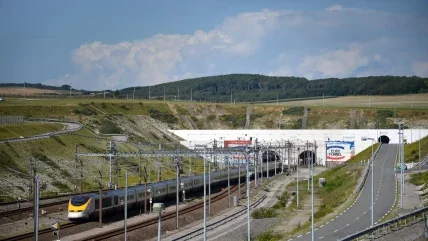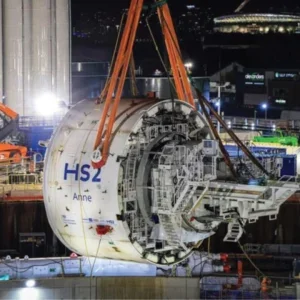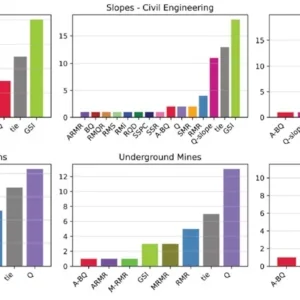
Few people have major impact on an industry that is packed full of highly experienced and very capable engineers and project managers such as the UK tunnelling industry, where its players are also active globally, in leadership and competitively. To do so through large project engineering, and also to bring change to procurement of tunnelling contracts at the same time, is even more rare.
Roger Remington did both, in the early 1990s, as a leader with major UK utility Thames Water which was then developing the London Ring Main – the huge orbital tunnel below the heart of London that was upgrading the capital’s water supply backbone. It was on that project – as Project Director – that Roger helped steered a switch away from the ICE’s 5th Edition form of contract to instead employ the IChemE’s Conditions of Contract for process plants (called the ‘Green Book’) in a target-price reimbursable approach to procurement for civil and tunnelling works.
The procurement change was part of Thames Water bringing more project and risk management into its engineering function, with accreditation systems to handle multiple projects – many in addition to the giant Ring Main which started in the late 1980s. Doing so, first with test sewage treatment plants that required civils and M&E works, showed that more time and cost certainty could be achieved with the change in riskreward to be more of a pain/gain balance. This would lead on to its use on the utility’s large civil engineering tunnel works – along with some other risk management measures.
As Roger noted in a co-authored ICE paper, use of the Green Book for shaft and tunnelling contracts was a major deviation from its original intended application. However, with early stage difficulties on parts of the Ring Main, such as a stuck flooded TBM while using the ICE 5th, the Green Book was tried out to support recovery and completion of the works. It worked. Then its use became serious on the rest of the Ring Main. It use was combined with other measures, including a new concrete lining of wedge block arrangement that had fewer segments and longer rings, high productivity segment production using post- Channel Tunnel equipment, and purchase of TBMs – all made available to contractors under the target-cost contract system.
Soon after, in 1993, in recognition of his contribution to the large UK tunnel project as it came to completion and his consequential influence on the possibilities around procurement in the tunnelling industry, the BTS awarded Roger with the James Clark Medal. That was 30 years ago, and the many in the industry will well recall those large tunnel works under London and significant procurement changes, and the legacy of what was, then, a new approach to possibilities in project development, risk sharing and delivery between a client and the supply chain.






